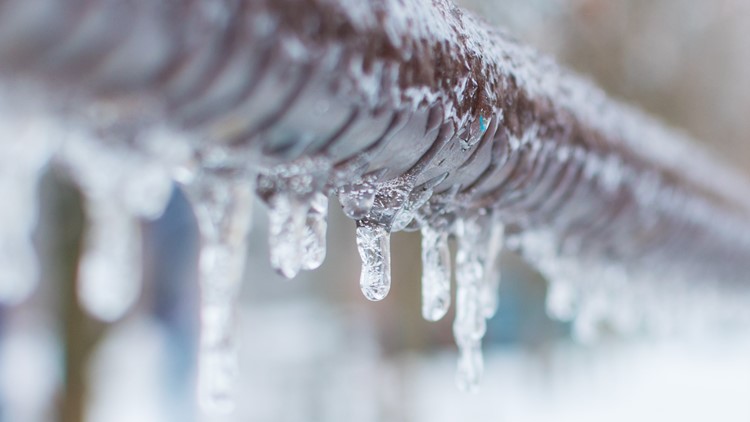Protecting Pipes from Freezing Damage: Essential Tips
Protecting Pipes from Freezing Damage: Essential Tips
Blog Article
What are your opinions about How To Avoid Freezing Pipes?

Winter can wreak havoc on your plumbing, especially by freezing pipelines. Below's just how to prevent it from happening and what to do if it does.
Introduction
As temperatures decrease, the danger of frozen pipes boosts, potentially resulting in expensive repair work and water damage. Comprehending how to prevent icy pipelines is vital for home owners in chilly climates.
Prevention Tips
Shielding prone pipes
Wrap pipelines in insulation sleeves or utilize warmth tape to secure them from freezing temperature levels. Focus on pipes in unheated or exterior areas of the home.
Home heating methods
Keep indoor areas adequately heated, specifically locations with plumbing. Open cabinet doors to permit cozy air to circulate around pipelines under sinks.
Just how to identify icy pipes
Search for decreased water circulation from taps, unusual smells or noises from pipelines, and visible frost on subjected pipelines.
Long-Term Solutions
Architectural adjustments
Think about rerouting pipelines far from outside wall surfaces or unheated locations. Include added insulation to attics, basements, and crawl spaces.
Upgrading insulation
Invest in premium insulation for pipes, attics, and walls. Proper insulation helps maintain regular temperature levels and lowers the threat of icy pipes.
Safeguarding Outdoor Pipes
Yard hose pipes and outdoor taps
Detach and drain yard pipes before winter. Mount frost-proof spigots or cover exterior taps with insulated caps.
Recognizing Frozen Pipelines
What triggers pipelines to freeze?
Pipelines freeze when revealed to temperatures listed below 32 ° F (0 ° C) for prolonged periods. As water inside the pipelines ices up, it increases, taxing the pipeline walls and potentially triggering them to rupture.
Dangers and damages
Icy pipes can lead to supply of water disturbances, property damages, and expensive fixings. Ruptured pipes can flooding homes and cause substantial architectural damage.
Indications of Frozen Piping
Recognizing icy pipelines early can stop them from breaking.
What to Do If Your Pipelines Freeze
Immediate actions to take
If you think frozen pipes, maintain taps available to ease pressure as the ice melts. Make use of a hairdryer or towels taken in hot water to thaw pipelines gradually.
Final thought
Preventing icy pipes requires aggressive procedures and quick actions. By comprehending the reasons, indications, and preventive measures, house owners can safeguard their pipes during winter.
Helpful Tips to Prevent Frozen Pipes this Winter
UNDERSTANDING THE BASICS: WHY PIPES FREEZE AND WHY IT’S A PROBLEM
Water freezing inside pipes is common during the winter months, but understanding why pipes freeze, and the potential problems it can cause is crucial in preventing such incidents. This section will delve into the basics of why pipes freeze and the associated problems that may arise.
THE SCIENCE BEHIND FROZEN PIPES
When water reaches freezing temperatures, it undergoes a physical transformation and solidifies into ice. This expansion of water as it freezes is the primary reason pipes can burst. As the water inside the pipe freezes, it expands, creating immense pressure on the walls. If the pressure becomes too great, the pipe can crack or rupture, leading to leaks and water damage.
FACTORS THAT CONTRIBUTE TO PIPE FREEZING
Low Temperatures: Extremely cold weather, especially below freezing, increases the risk of pipes freezing. Uninsulated or Poorly Insulated Pipes: Pipes located in unheated areas, such as basements, crawl spaces, or attics, are more prone to freezing. Insufficient insulation or lack of insulation altogether exacerbates the problem. Exterior Wall Exposure: Pipes running along exterior walls are susceptible to freezing as they encounter colder temperatures outside. Lack of Heating or Temperature Regulation: Inadequate heating or inconsistent temperature control in your home can contribute to frozen pipes. PROBLEMS CAUSED BY FROZEN PIPES
- Pipe Bursting: As mentioned earlier, the expansion of water as it freezes can cause pipes to burst, resulting in significant water damage.
- Water Damage: When pipes burst, it can lead to flooding and water damage to your property, including walls, ceilings, flooring, and personal belongings.
- Structural Damage: Prolonged exposure to water from burst pipes can compromise the structural integrity of your home, leading to costly repairs.
- Mold and Mildew Growth: Excess moisture from water damage can create a favorable environment for mold and mildew growth, posing health risks to occupants.
- Disrupted Water Supply: Frozen pipes can also result in a complete or partial loss of water supply until the issue is resolved.
WHY CERTAIN PIPES ARE MORE PRONE TO FREEZING
- Location: Pipes located in unheated or poorly insulated areas, such as basements, crawl spaces, attics, or exterior walls, are at higher risk of freezing.
- Exterior Pipes: Outdoor pipes, such as those used for irrigation or exposed plumbing, are particularly vulnerable to freezing as they are directly exposed to the elements.
- Supply Lines: Pipes that carry water from the main water supply into your home, including the main water line, are critical to protect as freezing in these lines can affect your entire plumbing system.
- Underground Pipes: Pipes buried underground, such as those connected to sprinkler systems or outdoor faucets, can be susceptible to freezing if not properly insulated.
https://busybusy.com/blog/helpful-tips-to-prevent-frozen-pipes-this-winter/

I recently found that piece about How To Avoid Freezing Pipes while doing a search on the internet. Make sure you set aside a second to promote this article if you liked it. Many thanks for your time. Revisit us soon.
Call Today Report this page